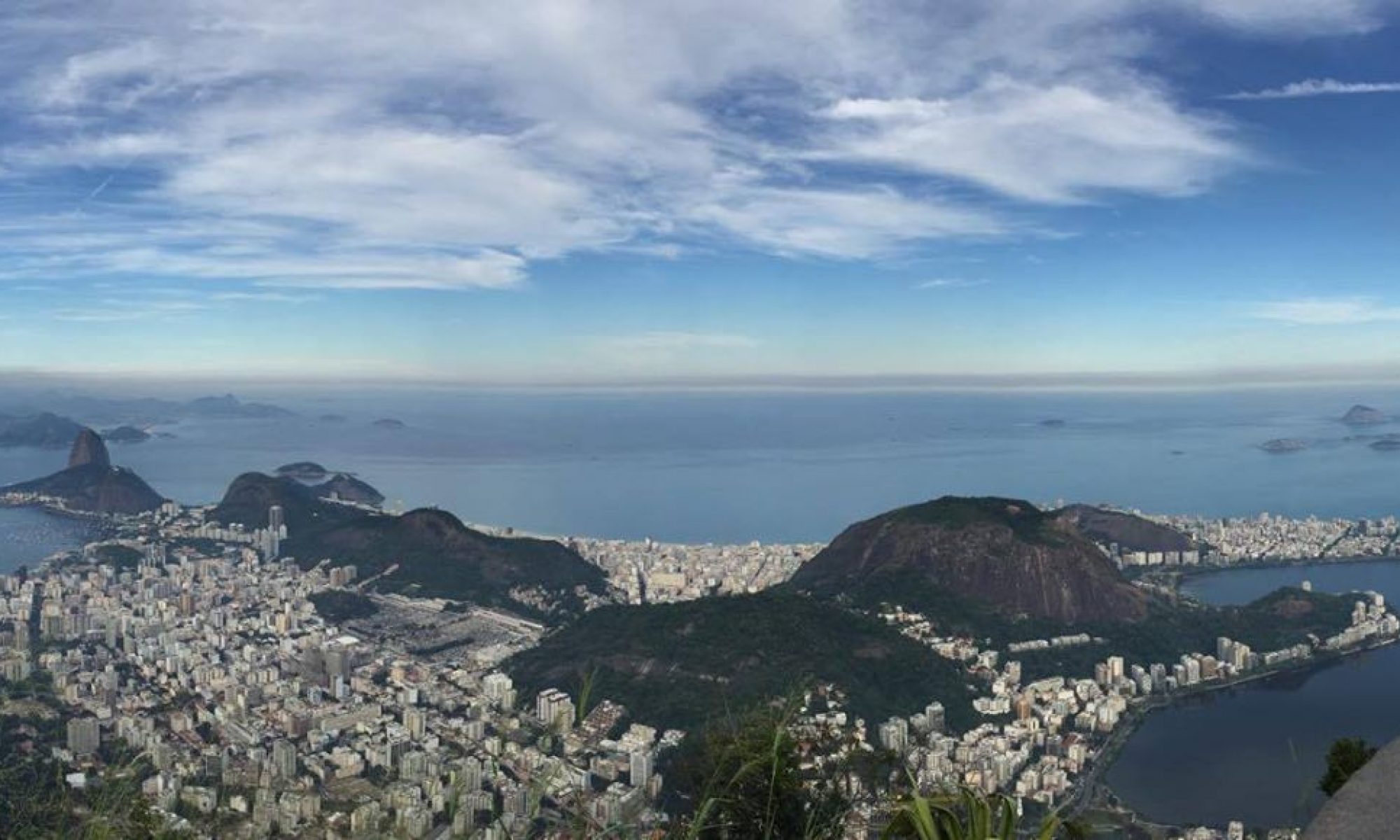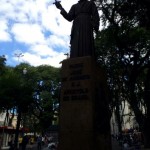June 8, 2015
By: Robert Hill
Our day started with a trip to BM & F Bovespa, the stock exchange in Brazil. When we arrived we were greeted by Fabio Iwabe, Professor of Derivatives and Macroeconomics at BM & F Bovespa Educational Institute. He gave us a crash course in Brazil’s economic structure. Some of the interesting facts during his presentation were that out of all the BRIC* countries (excluding China) Brazil has the highest GDP at 2.2 billion. He also put into perspective the class structure in Brazil. Brazil is composed of five different classes; Class A, B, C, D, and E. Therefore the middle class, or C individuals, are the equivalent of the working class in America. To our surprise, the business world considers people of the favela middle class citizens, and active consumers in the market. He said that with the new government subsidies and funding, the people of the favela have more money and therefore are more active in the market. This was very confusing to me because coming from the perspective of a person who has been in the favelas and talked to many professionals that came from that area, much of their community development and general change was very organic. They have water and electricity (at times limited), but luxury items are not prevalent in the favelas. For instance, during our talk with Maria Amelia Vilanova, she told us about how difficult it was to get resources to people in those areas. Things such as gato-cable or borrowed cable from another resident are necessary for residents who want to have a luxury such as cable.
In one of our books, Laughter out of Place: Race, Class, Violence and Sexuality in a Rio Shantytown, the author Goldstein says: “For Bourdieu, hegemonically constructed forms of cultural capital are a possession of the dominant class and are acquired through the process of class production and reproduction” (Goldstein, 2013: 91). Using this quote in the perspective of class, the ability to label groups of people A, B, C, D, or E is a privilege given to those amongst the dominant class. People in the favela have what they need on a basic level, but by my encounters with them thus far; I think they would disagree with the statement that they have enough to be active participants in the market. But either way, the dominant class retains control of cultural capital and thus of their class position in society.
After Fabio Iwabe’s presentation we visited one of the tallest buildings in São Paulo to see the entire city at a bird’s eye view. From there we had lunch in very prominent business area, where race seemed to be a prescient issue because our group had the only people of color both in the restaurant and in the immediate area. From there we traveled to the University of São Paulo. Once there we toured the campus and then had a talk with Professor Brito about the university and his experiences as an undergraduate. He said that being a person of color coming to the university out of high school was almost impossible. He explained that Blacks in Brazil face an extreme educational disadvantage because entrance exams for universities test on subjects that public schools don’t teach. He then went into more detail about the issue. In Brazil public colleges are free and private colleges the citizens have to pay for. So in the country what we have is the children of the rich who go to private schools can pass the entrance exam and go to public colleges for free. On the contrast, public school students have to go to private colleges with the easier exams and must pay for school. Professor Brito then talked about his own personal experience with the matter and how he was one of the only students of color in his class.
After leaving the University of São Paulo we went to eat dinner at a small diner and then to Samba de Vela. Samba de Vela was a Samba Event where the community sits in a circle surrounding the five musicians in the middle and serenades the guests with samba music until the candle in the middle burns out. The lyrics resembled the pride and resilience of the people of color in the country. One of the songs we sang had a line about how “to resist is to exist which is to take action.” It reminded me of a gypsy that was on the train playing music to make money. The government has outlawed such activities and has advised the people not to patronize the performers. Still, we were on the train many of the people, including myself, gave the performer money. The gypsy’s patronage and the powerful samba music we listened tonight are all forms of resistance. The people in Brazil perform every day, They know the system is unjust and revolt in their own ways.
*BRIC=Brazil, Russia, India, China otherwise known as the world’s emerging economies.





















